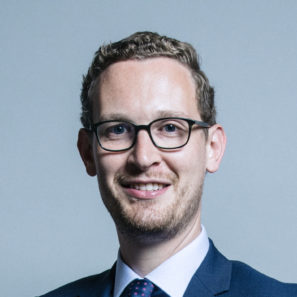Let’s solve data poverty with people – not for them
Darren Jones, MP for Bristol North West, writes about the action he is taking in Parliament and with the government to end data poverty.
Data poverty – or the inability to afford sufficient, private and secure mobile or broadband data to meet essential needs – is a complex, cross-cutting issue. From DCMS to DWP, most Government departments have a role to play in tackling data poverty. Yet, at present, it is clear that the Government lacks a coherent, coordinated plan to end data poverty in this Parliament.
This is not to say that the Government isn’t making some positive steps. As Chair of the Data Poverty APPG, I have been advocating for social tariffs and I have been pleased with the approach that DCMS has taken so far on this issue.
I’ve also been speaking to the DWP on behalf of the APPG, who have agreed to build an API to verify Universal Credit status to enable quick online ordering of social tariff broadband products. We’ve since seen good progress from some of the ISPs and networks and we hope that the adoption of social tariffs will continue to grow within the sector.
I sincerely hope that social tariffs will allow many more families to get online. It’s clear that affordability is a real barrier to a 100% digitally included UK – as the latest data from the annual Lloyds Consumer Digital Index shows that a third of those who are offline would be motivated to get online if their internet bills were cheaper.
But there’s more work to be done. Social tariffs won’t work for everyone and we will need to explore a range of solutions to end data poverty. We need sustainable solutions to data poverty in our country, especially for children who need internet access for educational purposes. And, somewhat ironically, we also need better data about data poverty – we simply don’t know enough about the extent and depth of the issue across the UK.
The best way we can learn more is, of course, to talk to those who are directly affected by data poverty, and Phil’s experience highlights just how much we have to learn. In 2015, Phil was living in a hostel with only a few communal computers. “I think, out of ignorance, I thought that was more than sufficient,” Phil says, “I believed that everyone was responsible for their own life and had the power to change what they wanted to change.”
And while Phil still believes certain aspects of this are true, he says he realised that there are “systemic inequalities that need addressing” to allow change to happen. Phil says he now believes “that digital access is now a human right… Why should anybody have to use a public place to do what is now a necessity?”
Too many families, for too many years, have been unable to afford internet access. But the prevalence of data poverty has been exposed and exacerbated by the pandemic.
Phil’s story sums up exactly why I and the Data Poverty APPG are proud to support Good Things Foundation and Nominet’s new Data Poverty Lab. The Data Poverty Lab will also work with people with lived experience of data poverty to understand which solutions work best for them. This is crucial – we can’t understand which policies will work without consulting first with the people who will be affected by them. One of these people is Phil, who now works for APLE Collective – a group of people bound by their shared experiences and committed to ending poverty.
The Data Poverty APPG will work with the Data Poverty Lab and others engaged in data poverty research to press the Government to implement the reforms our society needs. We’ll also push the Government to increase data collection so that we can design better policy solutions. And within the push for gigabit and 5G connectivity for all, we will urge the Government to consider how these technologies can best be used to reduce data poverty across the UK.
This isn’t a new phenomenon. Too many families, for too many years, have been unable to afford internet access. But as with many other issues, the prevalence of data poverty has been exposed and exacerbated by the pandemic.
Nobody should have to choose between feeding their family and seeing their friends. Nobody should have to deny their children an education so that they can do their job. Nobody should have to experience data poverty.

Darren Jones
MP for Bristol North West
Darren Jones is the Labour MP for Bristol North West and, since 2020, chair of the House of Commons Business, Energy and Industrial Strategy Committee. Darren also runs Labour Digital, a centre-left think tank focusing on technology issues, co-chairs the cross-party Parliamentary Internet, Communications and Technology Forum, and is chair of the Institute of AI, a global network of legislators exploring the regulation of artificial intelligence. In his previous life Darren worked as a solicitor specialising in consumer rights, data and telecommunications law. He is a practicing vegan.
